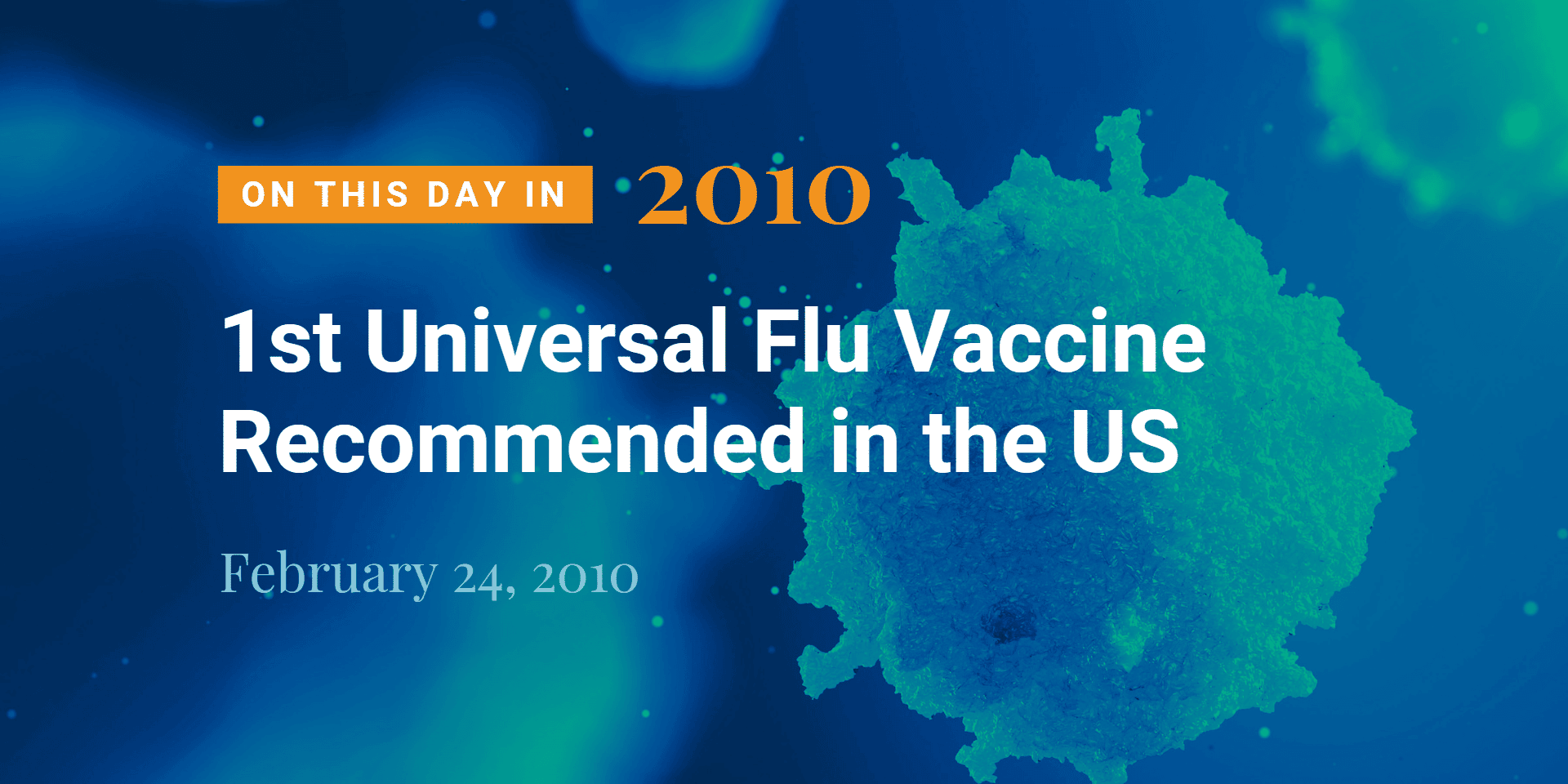
The National Foundation for Infectious Diseases (NFID) is celebrating its 50th anniversary in 2023 with a look back at our remarkable accomplishments and significant moments in public health history. Special thanks to the NFID leaders who offered their reflections on the anniversary of the Centers for Disease Control and Prevention (CDC) recommendation of universal influenza (flu) vaccination for everyone age 6 months and older, on February 24, 2010.
According to an archived CDC press release, the universal recommendation sought to “remove barriers to influenza immunization and signal the importance of preventing influenza across the entire population. The vote took place against a backdrop of incremental increases in the numbers and groups of people recommended for influenza vaccination in years past, and lessons learned from the still ongoing first flu pandemic in 40 years.” Members of the Advisory Committee on Immunization Practices (ACIP) were focused on protecting young adults age 19 to 49 years, who had been hard hit by the 2009 H1N1 pandemic virus.
What was the significance of the recommendation for universal flu vaccination?
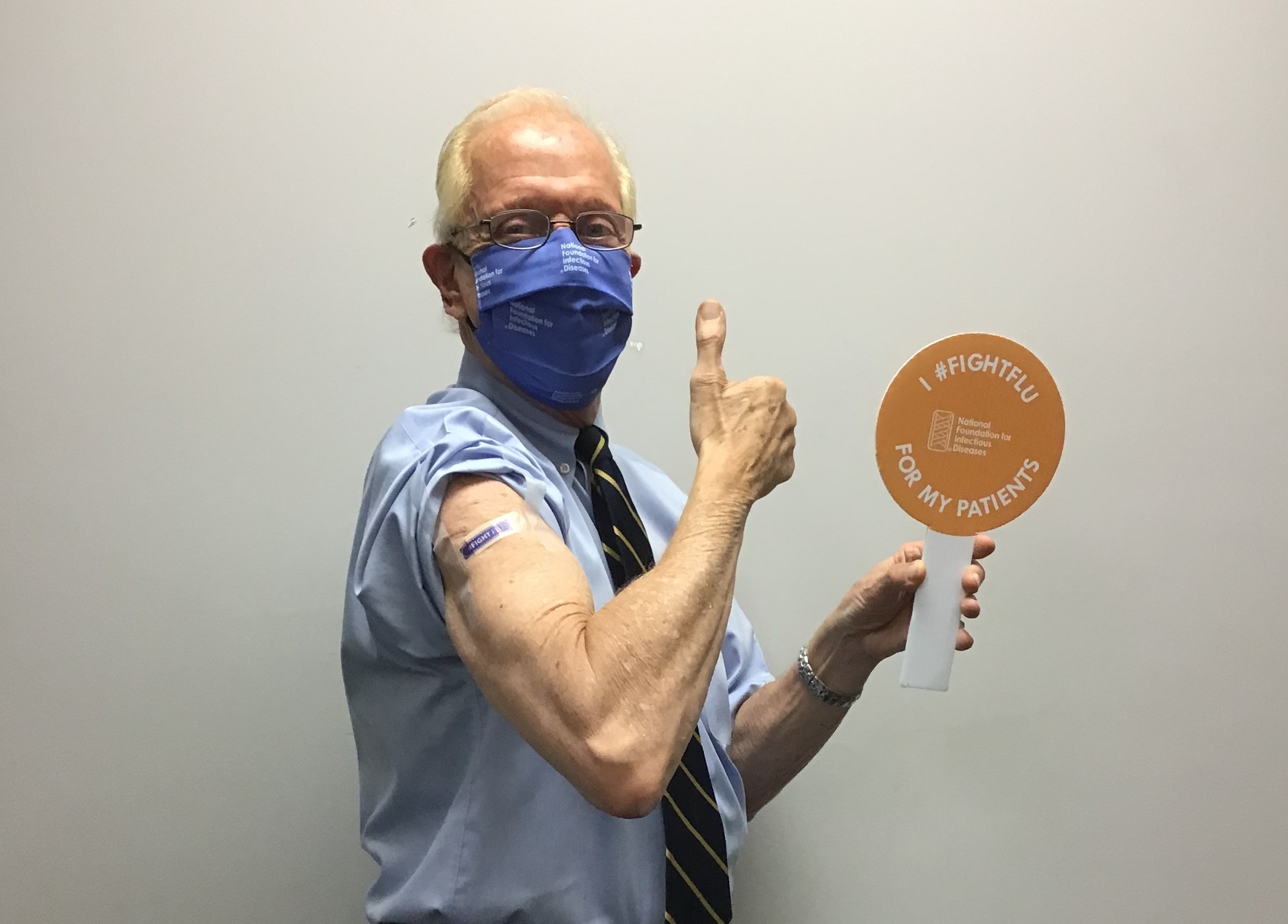
William Schaffner, MD (NFID Medical Director): The universal flu vaccination recommendation (that is, vaccinate everyone age 6 months and older) was a bold game-changer. It made the protection provided by flu vaccine available to essentially the entire US population, both children and adults—something that no other country had done. It made understanding and remembering the recommendation very simple for both healthcare professionals and the public, thereby encouraging wider acceptance of the vaccine.
The universal recommendation also had a larger role. It long had been acknowledged that risk-based vaccination recommendations for all sorts of vaccines for adults did not translate readily into practice. Thus, the universal influenza vaccine recommendation “broke the ice,” encouraging ACIP to consider universal recommendations for adults in certain age groups. Shingles, hepatitis B, and pneumococcal vaccines are current examples.
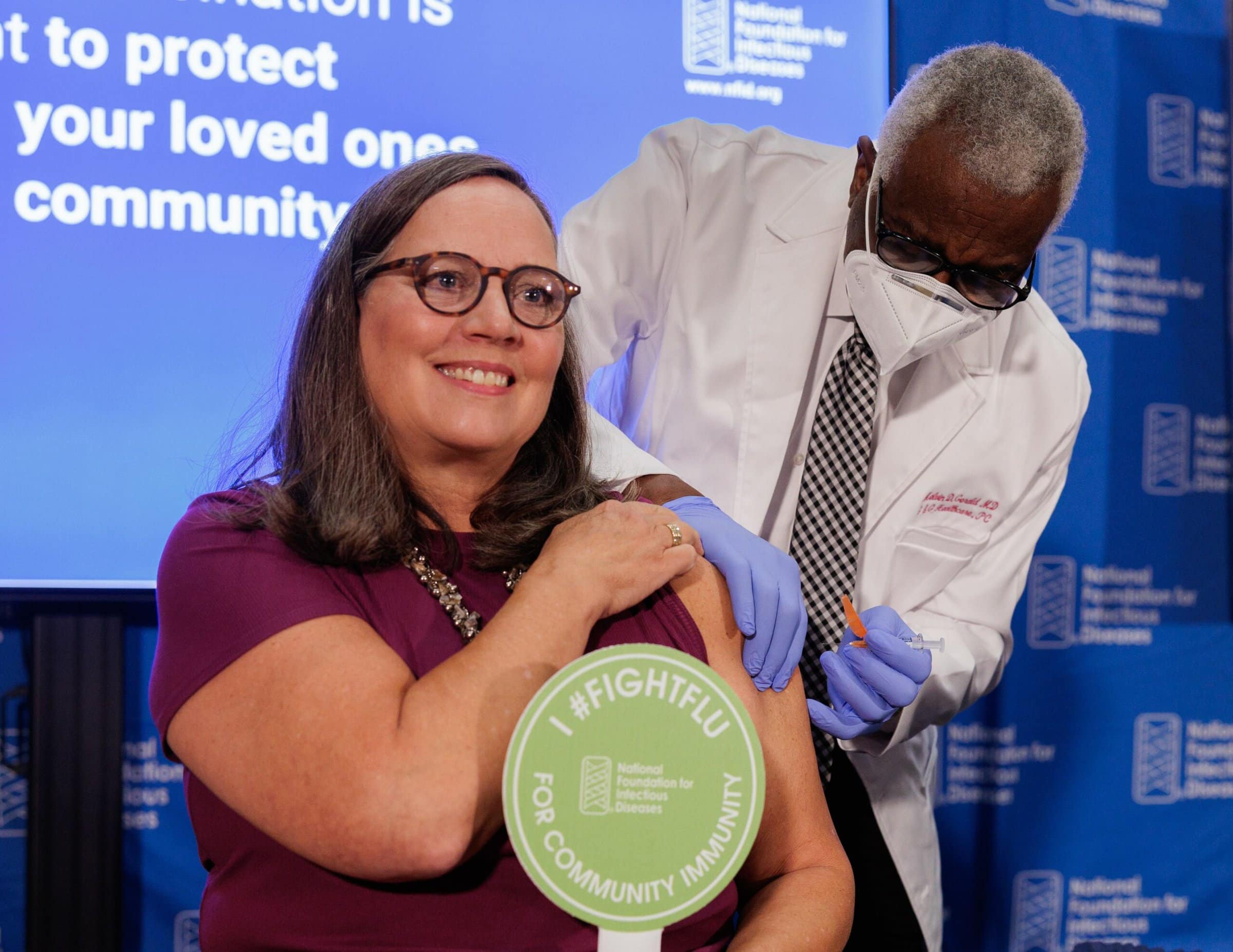
Patricia (Patsy) A. Stinchfield, RN, MS, CPNP (NFID President): The universal flu vaccine recommendation was a multi-year and multi-vote effort to expand flu vaccination for various risk groups and age groups until finally achieving a clear, simple, inclusive recommendation. With the long list of high-risk groups and increasing age groups, the flu vaccine recommendation was covering more than 85% of the population. When CDC added the 18-49-year-old remaining age group in 2010, it made annual influenza vaccination a universal recommendation for everyone age 6 months and older in the US.
 Walter A. Orenstein, MD (NFID President, 2016-2018): This was an extremely important decision in multiple ways. First, it simplified the immunization schedule by recommending everyone be vaccinated instead of the prior multiple risk-group strategy, which had low uptake.
Walter A. Orenstein, MD (NFID President, 2016-2018): This was an extremely important decision in multiple ways. First, it simplified the immunization schedule by recommending everyone be vaccinated instead of the prior multiple risk-group strategy, which had low uptake.
Second, it led both to direct and indirect benefits when implemented. Direct benefits included decreasing the risk of flu and its complications in everyone in the population, and simplifying implementation of the recommendation. It is much easier to vaccinate everyone rather than having to determine whether a given person does or does not have an eligible underlying medical condition. The indirect benefits included limiting stress on medical systems (e.g., fewer acute care visits and hospitalizations due to flu) and reducing the need for people to take time off from work due to flu and related complications.
How did NFID contribute to this effort?
Schaffner: NFID does not make vaccine recommendations, rather it promotes the recommendations made by CDC. In this context, NFID quickly collaborated with professional society partners to publicize and promote universal influenza immunization to both healthcare professionals and the general public.
Stinchfield: NFID leaders and volunteers played significant roles. Kathleen M. Neuzil, MD, MPH (currently NFID Vice President) chaired the ACIP Influenza Vaccine Work Group for years. Bill Schaffner, as NFID liaison to ACIP, commented regularly on how NFID supported flu vaccination of young children and adolescents, and I seconded the motion made by Carol J. Baker, MD (NFID President, 2006-2008) back in February of 2008 that annual influenza vaccination be recommended for all children age 6 months-18 years. I was also able to make a motion that passed urging the implementation of this recommendation as soon as feasible and no later than the 2009-2010 season. This gave flexibility for those clinics that were ready to vaccinate to move forward and not have to wait until other clinics were operationally prepared.
NFID played a critical role in promoting this policy and educating both the healthcare professional community and the general population to get their annual influenza vaccine.
Walter A. Orenstein, MD (NFID President, 2016-2018)
What is the role of NFID moving forward?
Schaffner: Although we have a universal recommendation, universal acceptance of annual influenza vaccination remains far from having been achieved. The challenges of vaccine hesitancy, skepticism, indifference, and opposition remain. The mission of NFID to educate, engage, and reassure remains vital and will continue.
Stinchfield: Through the NFID Annual Influenza and Pneumococcal Disease News Conference, webinars, and public awareness campaigns, this has been and will continue to be the clear, simple message that NFID provides to the public and healthcare professionals: Everyone age 6 months and older should get vaccinated each year against influenza.
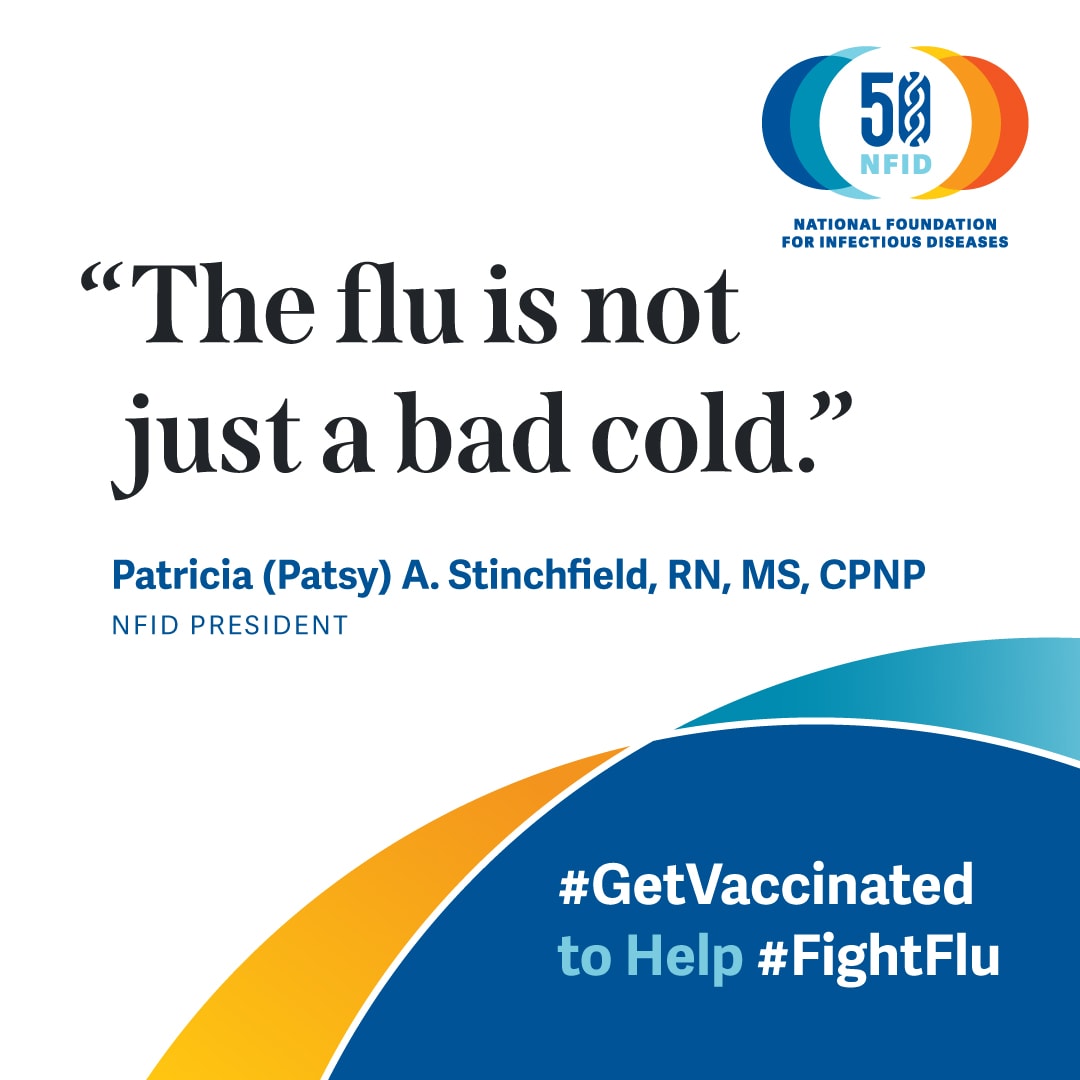
To join the conversation and get the latest news on infectious diseases, follow NFID on Twitter using the hashtag #FightFlu, like us on Facebook, follow us on Instagram, visit us on LinkedIn, listen and subscribe to the Infectious IDeas podcast, and subscribe to receive future NFID Updates.
Related Posts
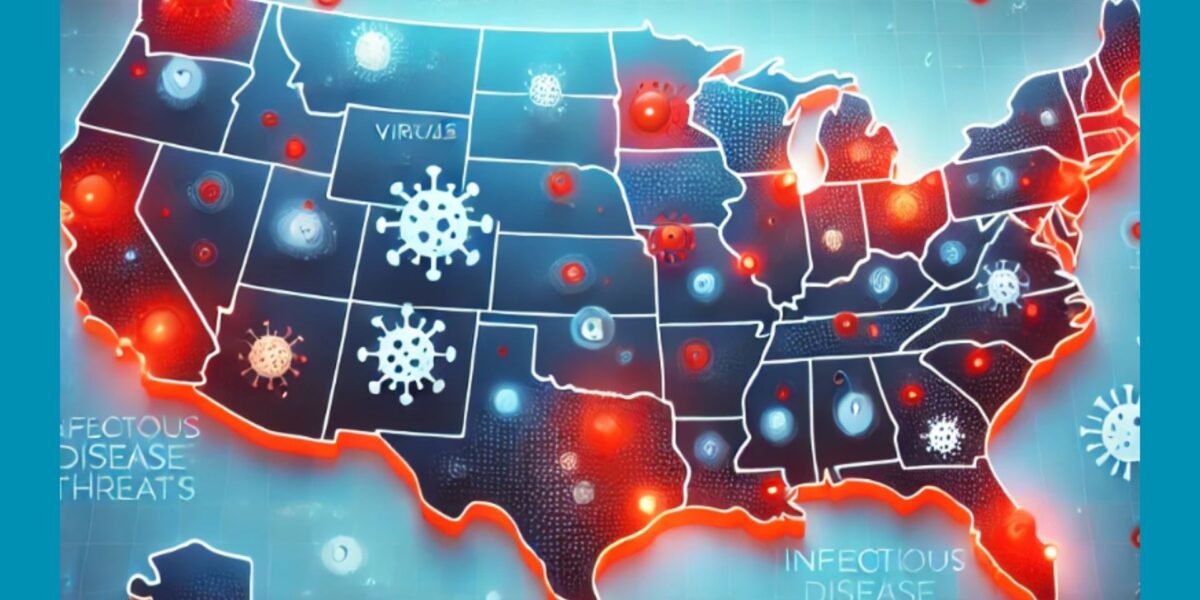
News Round-Up: Infectious Disease Threats
According to NFID website poll, there are several worrisome infectious disease threats. Read recent news on topics of greatest concern, including avian influenza (bird flu), measles, and respiratory syncytial virus (RSV) …

Vaccines and Heart Health: A Vital Connection
Heart disease can increase the risk of serious or fatal complications from respiratory diseases including COVID-19, flu, and RSV

Harnessing the Power of Local Data
NFID dashboard aims to empower stakeholders with hyperlocal data to increase US adult respiratory vaccine uptake
